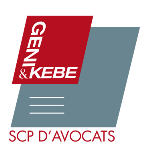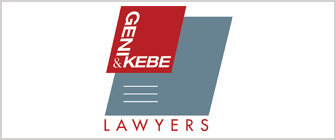Mouhamed Kebe of Geni & Kebe in Dakar looks at the broadening horizons of Senegal’s business environment
Senegal belongs to two major regional entities: ECOWAS and WAEMU.
ECOWAS is an association of 16 West African entities aiming at having one economic and monetary zone with a uniform legislation on the main sectors regarding economy, trade, natural resources, diplomacy, to mention a few.
WAEMU is an entity of eight West African countries, having the same currency, the same reserve bank and the same business law.
So, the advantage when doing business with Senegal is that the environment is not just local, it is regional.
Starting a business
The main framework regarding the starting of a business derives from the OHADA Company Act and the Senegalese Investment Code.
On the local level, the Investment Code provides several incentives aimed at making business more profitable and attractive. To be eligible for such incentives, the investment should be in one of the following sectors: Agriculture, mining, port, airport, railways, infrastructure, fishing, health or tourism.
The following conditions are required:
• The cost of the prospective investment must be equal to or higher than 100 million Francs CFA ($205,000).
• The prospective investment must provide for the creation of a new activity.
Regarding the advantages granted, two steps should be mentioned:
First step
• Exoneration from custom duties required at the moment of importation of materials that are not produced or manufactured in Senegal and which are specifically intended to serve in production or in operations within the framework of the contemplated project.
• Adjournment of Value Added Tax, payable on entry, for materials that are not produced or manufactured in Senegal and which are specifically intended to serve in production or in operations;
• Adjournment of Value Added Tax included in bills by local providers of goods, services and works, which are necessary for the realisation of the approved project.
Second step
The second step deals mainly with tax issues.
• Tax benefits
There are two tax regimes
The regime for new enterprises:
• Exoneration from the Employer's Fixed Contribution (CFCE) for five years
• Particular benefits concerning the Profits Tax
• Rebate from the amount of taxable profit from investment
The regime for projects of extensions
• Exoneration from the Employer's Fixed Contribution (CFCE) during five years if the number of jobs created within the framework of the agreed project of investment is superior to 100, or if at least 90% of the jobs created are based outside the Dakar region, this exoneration can be extended up to eight years
• For each fiscal year, the amount of rebate cannot exceed 25% of taxable profits
On the global level, The OHADA Company Act provides the main legislation dealing with starting a business.
OHADA is a Statute shared by 17 African countries. The OHADA Acts includes the following areas:
• Company Act • Private Companies
• Commercial Law Act • Sleeping Partnership
• Securities Act • Private Limited Companies
• Arbitration Act • Public Limited Companies
• Insolvency Act • Joint Venture
• Debt Recovery and Enforcement Act • De Facto Partnership
• Accounting Act • Economic Interest Group
• Under the Company Act 7 types of company can be registered in Senegal and the OHADA region.
According to data collected by Doing Business 2013, starting a business in Senegal takes five days. This performance is essentially the result of several reforms that have simplified the process. For example the ''Investment Council'' has been set up under the auspices of the President of the Republic Cabinet in order to assess the obstacles that block the investment environment and find out adequate solutions.
One of the solutions was to enlarge the competence of APIX, the national investment Agency, making it a one-stop shop for investors wishing to start a business in Senegal.
The 2013 Doing Business Report ranks Senegal 93rd out of 183 economies with regard to the facilitation of business start up, ahead of most countries of the sub-region.
Globally, the Report ranked Senegal the 5th placed world reformer and listed it among the top 17 reformers for the past five years.
New reforms making the justice sector more secure and more efficient
The efficiency of a judicial system providing a suitable dispute resolution is amongst the top priorities of Senegal. Indicators of the Doing Business had emphasised the slow process of the Senegalese judicial system; which makes it a very hard and long process to enforce contracts. To address this problem, several measures have been implemented.
New commercial divisions have been set up in courts, these new divisions will be dealing only with commercial matters. The aim is to improve efficiency and get faster and less costly contract enforcement, particularly where the commercial case load is large.
The other important reform is the amendment of the Civil Procedure Code, in August 2013, further to recommendations made by three advisory firms including GENI & KEBE. New provisions aimed at making the process of enforcing contracts easier have been enacted.
The new provisions impose new individual deadlines on the parties at different stages of the proceedings. They have also set up new rules dealing with case management, allowing a more efficient monitoring of the cases in the court docket from the filing of the claim until the judgment is issued.
Partner
Geni & Kebe
Dakar
About the author
Mouhamed KEBE is the Managing Partner of GENI & KEBE, a full service law firm based in Senegal with 9 affiliate offices across Francophone Africa. His practice focuses on corporate and investment law. He also oversees commercial transactions including joint ventures, banking & finance, natural resources, PPP…
Top tier ranked in Chambers global as leader in his field, he is also highly recommended as a Leading Lawyer in the International Financial Law (IFLR 1000) Energy and Infrastructure Guide.
Mouhamed is graduated from the University of Dakar Cheikh Anta Diop (SENEGAL) and the University of Essex (United Kingdom), and earned a certificate in International Commercial and Investment Arbitration from the University of London.
He is qualified with the Senegalese Bar Association (1993) and is member of the Law Society of England and Wales (International Division), the American Bar Association, and the International Bar Association.



